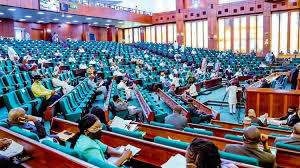The Green Climate Fund (GCF) in Bahrain, with the organization approving over $1 billion of new projects and programmes to support climate action in developing countries, and formally launching the Fund’s first replenishment.
The 19 new projects amount to a total investment from GCF of $1,038 million, and including co-financing the projects will channel over $4,244 million of climate finance for low-emission, climate-resilient development. GCF now has a portfolio of 93 projects amounting to over $4,605 million of GCF resources.
Nigeria is one of the numerous country beneficiaries to the GCF investments, appearing in no fewer than three programmes totaling some $446.5 million.
For instance, under FP092, the sum of $67.8 million is allocated for “Programme for integrated development and adaptation to climate change in the Niger Basin (PIDACC/NB)” in Nigeria, Benin, Burkina Faso, Cameroon, Chad, Cote d’Ivoire, Guinea, Mali, and Niger with the African Development Bank (AfDB) as accredited entity.
Similarly, $279.7 million is earmarked under the FP095 for “Transforming financial systems for climate” in Nigeria, Benin, Burkina Faso, Cameroon, Cote d’Ivoire, Ecuador, Egypt, Kenya, Madagascar, Mauritius, Morocco, Namibia, Senegal, South Africa, Tanzania, Togo, and Uganda with the Agencies Française de Dévelopement (AFD) as accredited entity.
Also, $100 million is budgeted under the FP099 for “Climate Investor One” in Nigeria, Burundi, Cameroon, Djibouti, Indonesia, Kenya, Madagascar, Malawi, Mongolia, Morocco, and Uganda, with the Nederlandse Financierings-Maatschappij voor Ontwikkelingslanden N.V. (FMO) as accredited entity.
Director, Department of Climate Change in the Federal Ministry of Environment, Dr. Peter Tarfa, disclosed that Nigeria would commence negotiating with the AfDB, Dutch FMO and French AFD towards accessing the fund “for the benefit of the vulnerable in the country”
“There is a need for the next steps as we jump-start the implementation stage,” he said.
This is the second time Nigeria will be benefiting from a GCF facility, the first being the $26 million Acumen Resilient Agriculture Fund (ARAF) (FP078), a climate change resilience project in the agriculture sector.
At the close of the four-day meeting, the Board decided to launch the process for the Green Climate Fund’s first formal replenishment, marking a key moment in the development of the world’s largest dedicated fund for climate action.
Co-Chair Lennart Båge stated, “The B.21 Board meeting exceeded expectations with more than a billion dollars of important projects approved, and the launch of the GCF replenishment process.”
Co-Chair Paul Oquist stated, “Climate finance and climate project formulation are the two greatest bottlenecks to climate action in the developing countries. GCF has a critical role to play in both.”
Javier Manzanares, Executive Director ad interim, stated, “With a rapidly growing portfolio, accelerating implementation on the ground, and a pipeline of $17 billion showing huge demand, GCF is now entering its first replenishment ready to step up its support of developing countries’ climate action.”
The Board meeting also approved the applications of 16 new Accredited Entities, the partner organizations that implement GCF projects. GCF now has 75 Accredited Entities, 41 of which are direct access, providing national and regional channels for developing countries to access GCF funds, as well as via GCF’s international Accredited Entities.
The Board also made several other significant decisions, including adopting a selection process for the recruitment of a new Executive Director and appointing Javier Manzanares as interim Executive Director, deciding to initiate a performance review of GCF to be carried out by the Independent Evaluation Unit, and selecting and appointing the World Bank as GCF’s trustee. The Board also held in-depth discussions on developing a process for decision-making in the absence of consensus.
GCF has approved 42 new projects in 2018, mobilizing a total of $8,056 million in climate financing since the start of the year (including co-financing). During 2018, it has also made a somewhat rapid acceleration in implementation on the ground. GCF now has 39 projects under implementation, worth $1.6 billion in GCF resources that are being deployed as climate finance in support of developing countries’ climate ambitions under the Paris Agreement.
Blueprint gives you the latest Nigerian news in one place. Read the news behind the news on burning National issues, Kannywood, Videos and the Military



